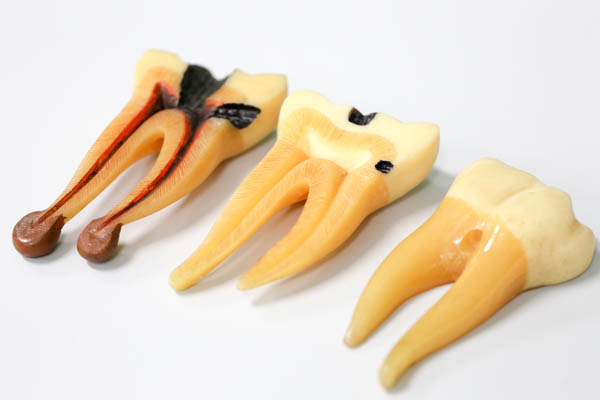Dental crowns have a wide range of cosmetic and restorative functions. A crown can protect a weak tooth from breaking. It can protect a cracked tooth from falling apart and can be used to restore a broken, misshapen or deeply discolored tooth.
A dental crown can be used to support the filling in a tooth that is worn to a nub. Crowns also hold dental bridges in place and act as the outer teeth of dental implants.
Because dental crowns have many uses, the chances of a dentist recommending a crown to fix your tooth is high.
It would be a good idea to know what dental crowns are made of and how they are fitted onto the teeth. You should also be aware of the benefits, drawbacks and risks of having a dental crown.
The different kinds of dental crowns
Dental crowns can be made from various materials. The material chosen to fabricate the crown depends on the crown’s purpose. For example, cosmetic crowns are made of tooth-colored substances. People who want tough, durable crowns opt for metallic crowns.
Below are some popular types of crowns:
1. Stainless steel crowns
These are popular for restoring milk teeth that have been damaged by decay. When the milk tooth falls out, the crown goes with it. These crowns are popular with pediatric dentists because they are affordable and can be fitted in a single procedure.
Prefabricated stainless steel crowns are also used as temporary covers for teeth that are awaiting a permanent crown.
2. Metal alloy crowns
These are made of alloys with a high percentage of gold, silver or base metal alloys (like nickel-chromium and cobalt-chromium).
They are the toughest, most durable type of dental crown and would be the perfect crown if it were not for their metallic color. For this reason, they are mostly used in the back molars.
3. Porcelain and metal crowns
These crowns are made of a tooth-colored porcelain exterior supported by an inner metal structure. Though the crown is structurally strong, its metal interior and base may weaken adjacent teeth, and its porcelain exterior could chip.
4. Ceramic crowns
These are made of pure porcelain. They are perfect for cosmetic dentistry and for people with metal allergies.
Installation procedure
A tooth must be prepared before a crown can be placed. In case of severe dental issues, the decayed part of the tooth is removed and the inner tooth cleaned and disinfected. Where necessary, a root canal is done.
Next, the surface of the tooth is filed down to make it rough enough to provide a good grip for the dental crown. A temporary crown is placed on the tooth as the patient waits for a permanent crown.
After the tooth has healed, dental cement is applied to the surface of the tooth and the inner surface of the crown. The crown is fitted to encase the entire outer tooth.
Benefits, drawbacks and risks
A dental crown improves the aesthetic of the tooth and protects it from infection and breakage. It is a permanent restoration method that lasts for decades. Still, dental crowns do have their shortcomings.
- Crowns require the removal of a layer of enamel, which may weaken the tooth and cause sensitivity
- Porcelain and metal crowns may start to grind away at adjacent teeth
- The base of a porcelain and metal crown is metallic and is visible as an unsightly dark line at the base of the tooth
There are also some risks that come with crowns:
- If the restored tooth has nerves, it may be sensitive to heat and cold because of its thinned enamel
- Porcelain crowns are not as sturdy as metal ones; they can chip
- The dental cement under the crown can come off and cause the crown to become loose, exposing the tooth to bacteria
- A badly fitted crown can fall off or come loose, exposing the natural tooth to bacteria
- Some people are allergic to metal crowns
Are dental crowns worth it?
In a word, yes. The benefits outweigh the risks. In fact, if you choose a good dentist, there is virtually zero chance of getting badly fitting crowns.
If you share your medical and dental history with the dentist, precautions can be taken to ensure that the fitted crown remains trouble-free. That means no allergies and no tooth sensitivity.
Dental crowns can fix most dental problems with minimal risk, and that is why dentists love them. Contact one of our dentists today if you need one.



